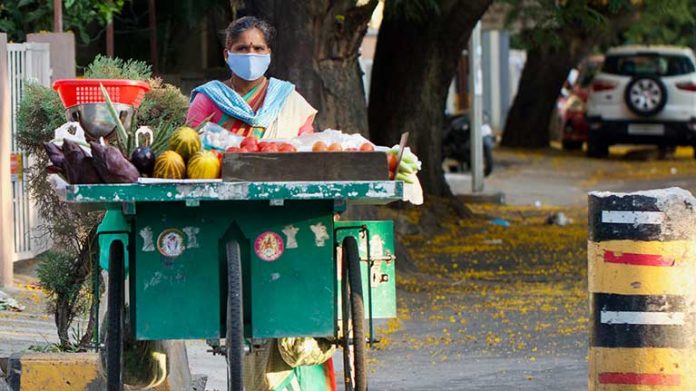Geneva– Nearly 1.6 billion workers in the informal economy – that is nearly half of the global workforce – stand in immediate danger of having their livelihoods destroyed, the International Labour Organisation (ILO) has warned, adding that more than 436 million enterprises face high risks of serious disruption globally.
In its latest update on global job losses, the ILO said that the drop in working hours in the current (second) quarter of 2020 is expected to be significantly worse than previously estimated.
Compared to pre-crisis levels (Q4 2019), a 10.5 per cent deterioration is now expected, equivalent to 305 million full-time jobs (assuming a 48-hour working week),” according to the “ILO Monitor third edition: COVID-19 and the world of work’.
The previous estimate last month was for a 6.7 per cent drop, equivalent to 195 million full-time workers.
“As a result of the economic crisis created by the pandemic, almost 1.6 billion informal economy workers (representing the most vulnerable in the labour market), out of a worldwide total of two billion and a global workforce of 3.3 billion, have suffered massive damage to their capacity to earn a living. This is due to lockdown measures and/or because they work in the hardest-hit sectors,” the findings showed.
Worldwide, more than 436 million enterprises face high risks of serious disruption.
These enterprises are operating in the hardest-hit economic sectors, including some 232 million in wholesale and retail, 111 million in manufacturing, 51 million in accommodation and food services, and 42 million in real estate and other business activities.
Estimates suggest a 12.4 per cent loss of working hours in Q2 for the Americas (compared to pre-crisis levels) and 11.8 per cent for Europe and Central Asia.
The estimates for the rest of the regional groups follow closely and are all above 9.5 per cent.
The first month of the crisis is estimated to have resulted in a drop of 60 per cent in the income of informal workers globally.
This translates into a drop of 81 per cent in Africa and the Americas, 21.6 per cent in Asia and the Pacific, and 70 per cent in Europe and Central Asia.
The ILO called for urgent, targeted and flexible measures to support workers and businesses, particularly smaller enterprises, those in the informal economy and others who are vulnerable.
“For millions of workers, no income means no food, no security and no future. As the pandemic and the jobs crisis evolve, the need to protect the most vulnerable becomes even more urgent,” said Guy Ryder, ILO Director-General.
“Millions of businesses around the world are barely breathing. They have no savings or access to credit. These are the real faces of the world of work. If we don’t help them now, these enterprises will simply perish,” he added.
Measures for economic reactivation should follow a job-rich approach, backed by stronger employment policies and institutions, better-resourced and comprehensive social protection systems.
“International co-ordination on stimulus packages and debt relief measures will also be critical to making recovery effective and sustainable. International labour standards, which already enjoy tripartite consensus, can provide a framework,” said the report. (IANS)















